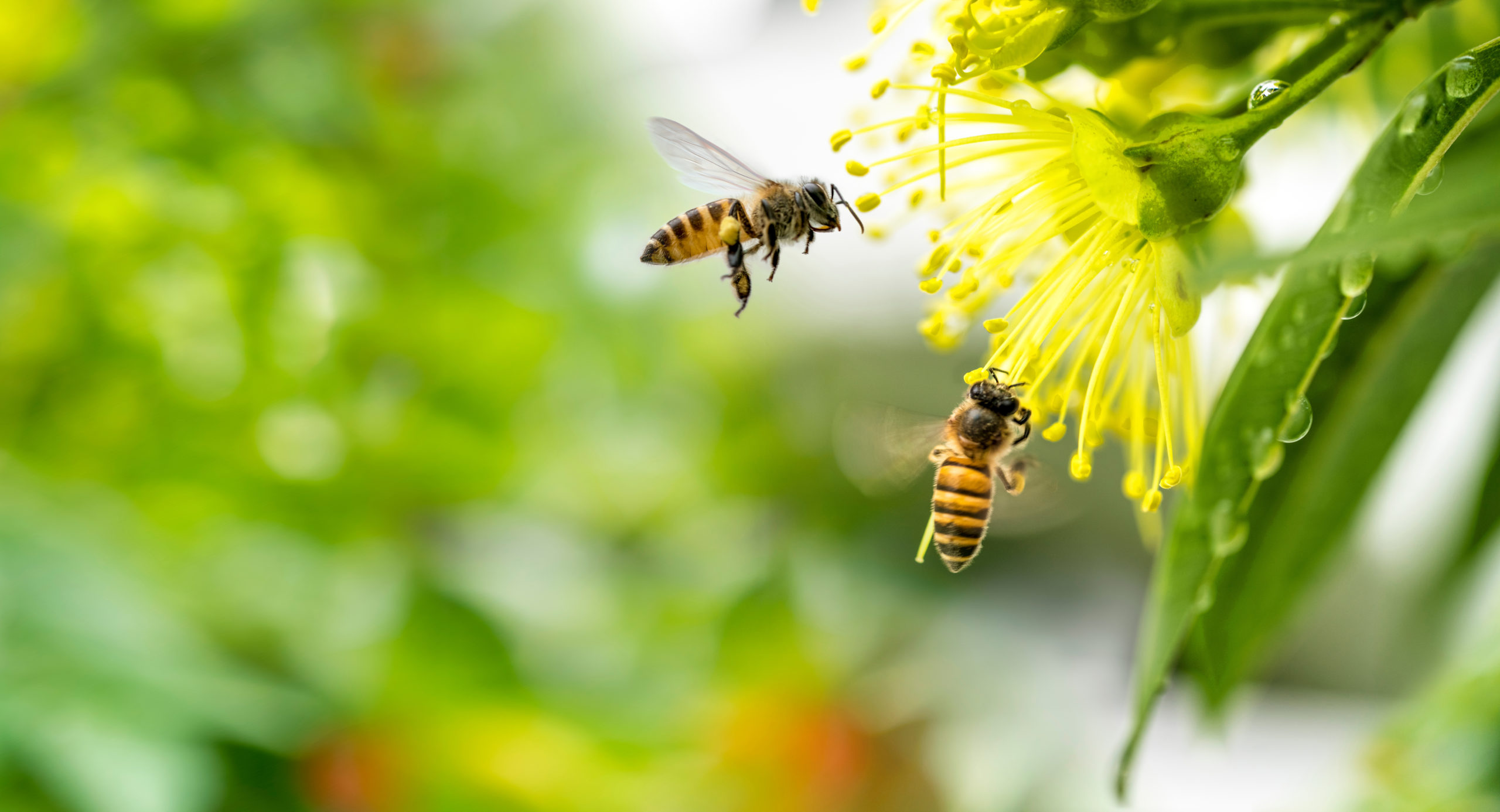Hey there! Did you know that bees, those little buddies buzzing around flowers, are actually pretty important for our crops? They go around collecting nectar and pollen, but here’s the catch – they often bump into pesticides, which can be really harmful to them. These pesticides are not something bees can just taste and avoid. Sounds strange, right? Well, it’s true!
Scientists from the University of Oxford dug into this. They wanted to see if bumblebees could tell the difference between regular nectar and nectar laced with pesticides. They tried a couple of methods to figure this out. Firstly, they checked the bees’ taste buds (yep, bees have those too!) to see if there was any reaction to the pesticides. Then, they offered the bees two kinds of meals: one was just sugary good old nectar, and the other was nectar with a dash of pesticide. Guess what? The bees couldn’t tell the difference. They sipped on both, not realizing one of them was actually dangerous.
This is a big deal because it means that bees can’t just avoid these pesticide-infested nectars when they’re out and about. It’s like they don’t even know they’re walking into a risky situation. This puts them in harm’s way, which is not good news for them or for the crops they help pollinate. Dr. Rachel Parkinson, a big brain from Oxford, pointed out that since the bees can’t taste the pesticides and don’t feel sick right away, they’ll keep going back to these harmful nectars.
Interestingly, when the bees were given something bitter like quinine, they didn’t like it much and tried to avoid it, especially when it was really strong. But when it was mixed in low amounts with their sugary snacks, they didn’t stay away, even though they ate a bit less.
So, what does this all mean? Well, it shows that we need to be super careful about using pesticides on crops, especially those that bees visit. We don’t want to trick our little bee friends into a dangerous dinner, do we? Some smart folks are even thinking of finding a non-toxic thing that tastes bad to bees. This could be used on crops that don’t need bees for pollination, keeping our buzzy pals safe and sound.
Pretty interesting stuff, right? It’s like a detective story, but with bees and science!
Read More: Peer Reviewed Study from Oxford University.


SuperPH22 slots blend strategy and luck beautifully. The 1024 ways to win and golden card symbols keep things exciting. Check out SuperPH for daily thrills!
Great read! It’s always fascinating to see how tournament strategy applies to games like SuperPH22, especially with its wilds and free spins adding a layer of skill and chance. Definitely resonates with a poker player’s mindset.
Understanding lottery probabilities can truly enhance your gameplay strategy. Platforms like Jilivip use data insights to improve user experience, making it easier to blend fun with informed choices.
Understanding player psychology is key in poker, and platforms like JLJLPH Casino elevate the experience with immersive games and smart tech – a great blend of strategy and entertainment.
Online gaming thrives on strategy and timing, and platforms like SuperPH elevate the experience with immersive live dealer games and top-tier slots. A must-try for serious players.
JiliPH really stands out with its smooth gameplay and secure platform. I love how easy it is to jump into games like Super Ace or Money Coming via Jilivip. Great for both casual and serious players.
Interesting analysis! Seeing a real push for immersive experiences now – anticipating player needs is key. Platforms like PH987 slot are leading that charge with innovative tech & adaptive interfaces. Exciting times for gaming!
Smart bankroll management is key with any online gaming – it’s so easy to get carried away! Building a solid foundation, like with Pinas77, can really help newcomers avoid early pitfalls & learn responsibly. It’s about gradual progress, not instant wins!
If you’re diving into AI tools for creative workflows, check out AI Girlfriend – it’s a fantastic hub for finding the latest and most useful AI solutions in one place!
It’s easy to get caught up in the excitement, but building a solid understanding is key. Resources like a good jiliok login guide can really help newcomers approach things strategically & responsibly. Knowledge is power!
Great breakdown! For those looking to apply betting insights to real gameplay, checking out JiliOK Casino could offer a hands-on way to test strategies with AI-driven support.
Dice games are such a fascinating blend of luck & strategy! Seeing platforms like jl boss elevate the experience with seamless integration & diverse games is cool. Easy access via the app is a big plus too! ✨
Really interesting read! It’s cool to see platforms like 68wim focusing on the Vietnamese market – localized support & games are a huge plus. Easy login sounds great too! Definitely a step up for online gaming there.
Interesting read! RNG integrity is key for trust, and platforms like jl boss seem to prioritize a smooth, secure experience-essential for enjoying phlboss slots & live games. Fair play matters!
Interesting read! The tech behind modern baccarat is evolving fast. Seeing platforms like 999phl casino embrace AI & blockchain for smoother gameplay & security is a game-changer. Definitely a step up for players!
Interesting points raised here! Responsible gaming platforms, like those offering bossjl games, are crucial. Quick registration & diverse options (like those fishing games!) really enhance the experience for players in the Philippines. 👍
Solid article! Thinking about bankroll management & game selection is key to long-term success. Platforms like jljl555 slot offer diverse options, but disciplined play is always paramount. Great insights here!
Interesting analysis! Seeing more Vietnamese players explore online gaming-platforms like uu888 offer a unique, story-driven experience. Registration & security seem key for new users there, too! Good insights.
Great article! It’s interesting how much data drives modern online casinos. Secure access & quick funding (like GCash!) are key, right? Checking out j8ph club for a legit experience seems smart-KYC is a must for peace of mind!
Really insightful article! Thinking about trying online casinos, and seeing a focus on legit platforms like winph99 online casino is reassuring. Secure logins & KYC are key, right? Great points about responsible gaming too! 👍
It’s fascinating how easily we fall into patterns while gaming – chasing losses is a classic! Platforms like 222ph slot emphasize mindful play, which is a great approach to keep things fun & balanced. Registration seems straightforward too!
Interesting read! Seeing platforms like jljl boss club prioritize data & security (KYC) is smart. Strategic play does need a solid foundation – beyond just luck! Good analysis.